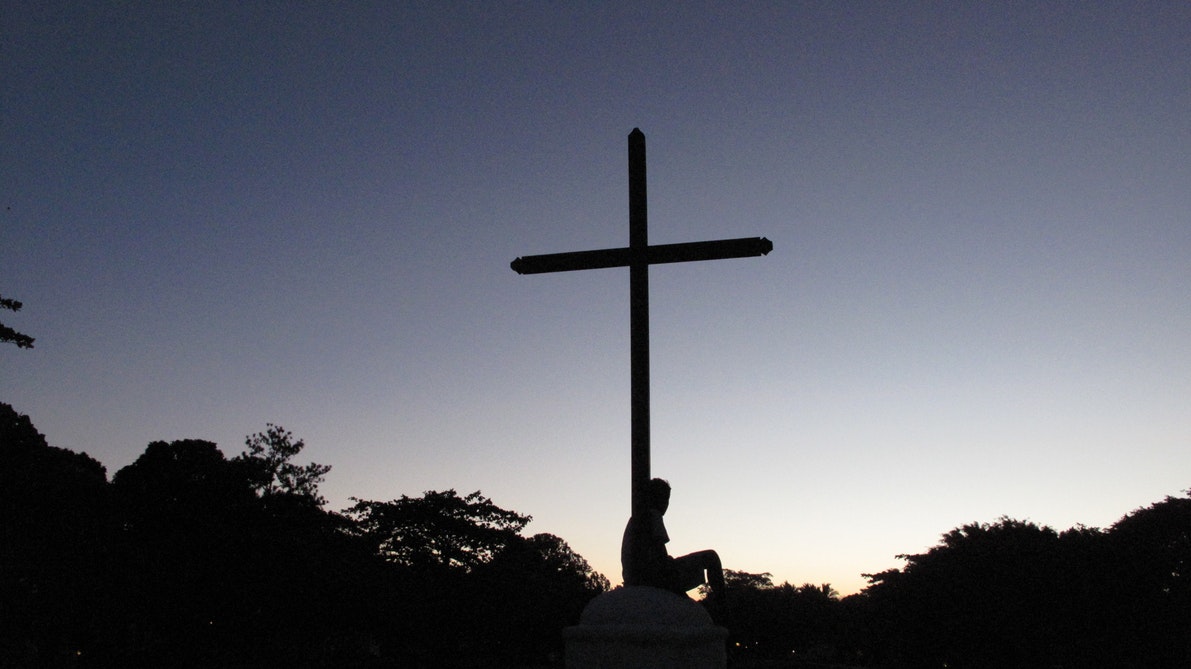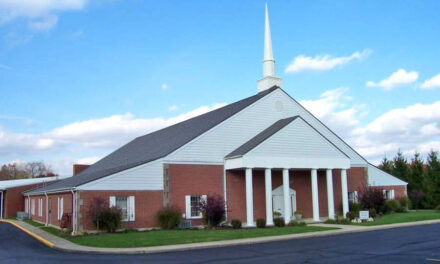Photo by April Dunn on Unsplash
June 17, 2022, my grandmother, Carolyn Jane Harrod, went to be with the Lord at age 81. I was saved on July 4th, 2020, and had the absolute joy and pleasure of being a testimony to her of the power of her prayers and God’s redeeming power over even a wretch like myself.
My grandma and I were very close. I spent much time at her house growing up, helping her and my grandpa with their duties in running a tombstone business (which meant mostly drawing at a special spot on the office desk while they worked), and relieving her freezer of the weight of her specialty cookies. Yeah, frozen cookies. Baked and then frozen. In the words of the stoner kid, Argyle, from season 4 of Stranger Things: “try before you deny”.
She and I would discuss spiritual things after my salvation. I could tell her heart was so encouraged to see the Lord working in my life and how radically He had transformed me. In her final months, she entrusted me with her old family heirloom Bibles and Psalters—some in Swedish and around 200 years old—which I treasure greatly and proudly display in my office. To see the crumbling leather of my forefathers’ Bibles blesses me deeply.
These Bibles belonged to Northern European immigrants, likely firmly planted in the Lutheran tradition, or perhaps Dutch Reformed. I very much intend to research that further and learn what the hands that touched these Bibles believed—but I am at least certain they were Protestants.
Not to mention, my grandmother on my mom’s side comes from Huguenot immigrants. Her mother was actually a member of the Huguenot Society. So it’s safe to say that, on top of Grandma Harrod’s Protestant heritage, hatred of Rome flows through my veins like the blood of my forefathers spilled in the streets during the St. Bartholomew’s Day Massacre.
I am honored to hold a piece of that history in my hands and to reflect on my ties to my favorite period of church history—one that has shaped what I believe today. Though they would all likely want me to go ahead and take my third baptism if they met me—Semper Reformanda.
Over the years, my grandma faithfully prayed for her wayward grandson’s salvation and, at times, I am certain, felt that perhaps I was just too far gone. She witnessed first hand the absolute depths of my youthful depravity. She even sent Pastor Bob, her Lutheran Pastor to counsel me when I was in county jail at 18. I grieve over the hardship I put her and my family through in my youth. Our loving God graciously allowed her to witness her answered prayers in my salvation before she departed this fallen world to be with her Savior.
Despite all the wickedness I displayed to her, she loved me nonetheless. She was just the most loving and caring woman you could have the pleasure of meeting.
So there I was, a baby Christian, who was praying over and consoling my dying grandmother in her final days. I recall reading Romans 8 with her and trying my best in my immature Christian self to comfort her with the reality and promises of her completed pilgrimage.
As we see with men like Moses, Peter, and King David, the Lord does fantastically great things with fantastically insignificant people, so I believe that God’s providence in my ministering to her was not in vain.
After her departure on that great journey, and closing her eyes to open them immediately to her loving Lord, I was asked to speak at her funeral.
I spoke these words at the pulpit of the Lutheran church my grandma attended and served for decades, where I attended when visiting (usually against my will) as a young heathen. I was actually baptized there as an infant myself (don’t worry, it was done properly upon my conversion, my Baptist brethren).
I would have gladly edited some of this eulogy and changed some things, but there is a sweetness to it that strikes me when I re-read it today, and I wouldn’t dare compromise that.
It is a loving send-off from a grandson to his grandma. A young Christian fighting against the secular soteriology of justification by death alone, with a simple gospel presentation for everyone in that room deceived into thinking that you are guaranteed salvation simply by dying.
You want to see my lovely grandmother again, (and let’s face it, who wouldn’t)? You’ve got to go through, Jesus. No one comes to the Father but by Him—John 14:6. Get right with the Lord today, because after your last breath, it is too late. And no, God does not owe you a deathbed to repent on after you’ve lived your life in rebellion to Him.
This is the unedited version of my eulogy for my dear grandmother’s funeral that I wrote going on three years ago. I have also included the iPhone video of it from my YouTube channel here. I hope it blesses you as it does me.
The Eulogy
Good morning everyone. For those of you who don’t know me, my name is Jay Harrod, I am Carolyn’s grandson.
A verse that I have prayerfully chosen today comes from the gospel according to John. If you have a terrible memory like myself, and struggle with memorizing scripture, this is an easy one. It’s the shortest verse in the Bible:
John 11:35 — “Jesus wept.”
Now I’d like to give some context and flesh this out a bit for us.
- Jesus was the friend of a man named Lazarus of Bethany, who was the brother of Martha and Mary Magdalene.
- We find Jesus in the Transjordan, after fleeing from the Jews in Jerusalem who sought to stone Him for saying that He and the Father were one, making Him equal with God.
No ordinary man would be allowed to say this by law, because this is considered blasphemy and punishable by death. But Christ is no ordinary man—He is God in the flesh. - Now, while Jesus was away, His friend Lazarus fell ill, so his sisters sent a messenger to Jesus to tell Him.
- The journey to Jesus from the town of Bethany took about a day, and Jesus did not arrive to the town until four days after the messenger was sent.
- Christ in His omniscience knew that Lazarus had died already before arriving; it’s likely he was dead before the messengers even reached Him.
- So Jesus arrives to the town and is informed that Lazarus has indeed been dead for four days.
- He is taken to the tomb by Martha, Mary, as well as the Jews who were mourning with them.
- It was Jewish custom for even poor families of the deceased to hire at least a couple of flute players and a professional mourner to weep for the dead. It seems as though this family was rather well off, because there is a crowd present at the tomb.
We now find ourselves at the tomb of Lazarus, “the one whom Jesus loved,” and there is weeping and mourning and pain going on around Him.
He then joins them in weeping. But why?
Jesus Christ—truly God and truly man, omniscient and omnipotent—is weeping for a man that He knows He is about to raise from the dead.
We see Christ Himself refer to the death of His friend as “sleep”; twice He says he will rise again.
In verse 4 He responds to the messengers saying:
“This illness does not lead to death. It is for the glory of God, so that the Son of God may be glorified through it.”
He tells Martha before going to the tomb:
“I am the resurrection and the life. Whoever believes in me, though he die, yet shall he live, and everyone who lives and believes in me shall never die.”
So why is He weeping?
Christ weeps because of this thing that ought not be—death.
He weeps for the loved ones of the deceased. Christ, as I said previously, was fully God in bodily form, but we must not forget He was fully man as well—tempted and tried in every way.
As the prophet Isaiah said of Him before He even condescended to earth, He is a “man of sorrows and acquainted with grief.”
So in this room today, He personally feels the pain and sadness that is felt, but even more so because His love is deeper and more perfect than we could ever achieve.
Grandma was a member of His fold. He knew her before the foundation of the world.
He knew every hair on her head, He knew her every thought and feeling, and He knows the pain we feel today.
He grieves over this thing that ought not be—her death.
God created man upright in the garden, and through one man’s sin, death entered into the world.
In the Apostle Paul’s letter to the Romans we see that “all men have sinned and fallen short of the glory of God” and that “the wages of sin is death”—since all have sinned, all die.
This is the nature of the fallen world and the fallen man: death, pain, suffering—all of which are a perversion of the way things ought to be.
My friends, my family, today I want to tell you with a heaviness in my heart, that there is hope beyond this life in Jesus Christ.
You see, we all have accrued a debt that we could never pay.
We have sinned against a Holy God and no amount of good works can ever cover the crime that has already been committed.
The Judge of the universe must exact punishment, because He said He would.
His standard of good is absolute perfection, and none of us can achieve it with our sin-soaked hands.
This is why it was necessary for Christ to have come and pay that fine on our behalf.
The Judge has rendered the punishment in Christ on the cross, and we are justified by it.
This is referred to as the great exchange—Christ lived a perfect and sinless life but willingly bore our sin on the cross, and we receive His righteousness through faith alone.
We can stand before God perfectly blameless and be given eternal life—a life that experiences none of the hardships that we do today.
A life with no death, no mourning—a life with Grandma.
Christ’s final words on the cross were “It is finished.”
The payment was made, the propitiation for our sin was accepted by God, and there is nothing more we can add to it.
As He said to Martha:
“I am the resurrection and the life. Whoever believes in me, though he die, yet shall he live, and everyone who lives and believes in me shall never die. Do you believe this?”
Do you believe this?
Grandma did.
The Catholic monk, turned priest, turned Protestant Reformer—Martin Luther—tried for years to be good enough to earn his own salvation.
Putting his body through torment day in and day out by fasting and sleeping on the cold monastery floors during the medieval German winters.
Following every sacrament of the Roman Catholic Church, in confession for hours a day.
Finally, by the Word of God, he realized he could not earn salvation, but that it was a gift of God upon believing the gospel.
He once said:
“If ever a monk got to heaven by his monkery, it was I.”
Well, if any person ever got to heaven by kindness, love, or charity—it was my grandmother.
So, my friends, if even she could not do it, none of us stand a chance.
Some of you may know her from her and my grandpa’s monument business, maybe through church or just through the community—a good majority of you probably know her for her famous cookies.
She was many things to many people.
She lit up the room wherever she went.
Always willing to give a helping hand, or an ear, to friends and strangers alike.
I will miss just being able to call her up and hear about her “Alaska shows”, or trying to explain to her my extremely weird work schedule for the 100th time, or just to talk about life.
It was one of the highlights of my day to speak with her and catch up.
I will miss her very much, but I know that this is not forever and she is present with the Lord—and one day I will be with them both.
By grace alone, through faith alone, in Christ alone.
So I thank God for that, and I pray that everyone here will be with us again as well.
Thank you all, and God bless.






Robert, thank you very much for the kind words, brother. That sincerely means a lot to me that your spirit…